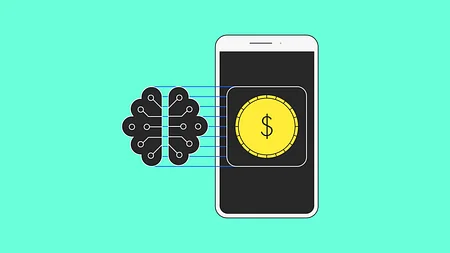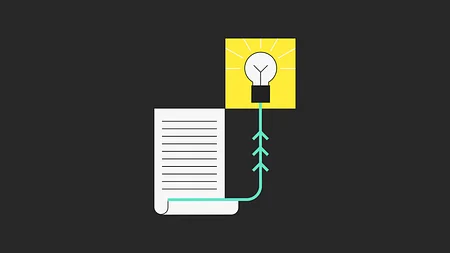Are fintechs really here to fix users’ finances?

I’ve worked in fintech for 10+ years now, since before it was a popular term, and long enough to see multiple hype cycles come and go.
One of the more enduring fintech themes in that time has been “financial education” and, more recently, “financial health”.
These are linked but there are some important conceptual differences!
This is taken from our Unfiltered newsletter. Subscribe now for a no BS, uncensored analysis of fintech news and hot topics delivered to your inbox each fortnight.
A quick search on the topic reveals plenty of breathless headlines like:
This is Why Financial Education is Key in the Fintech Revolution
The New Curriculum: Fintech’s Role In Financial Literacy
Fintech Startups Target Younger Audiences, Investor Interest In Financial Literacy
Yawn 😴
But what do startups actually mean when they talk about offering “financial education” or promoting “financial health”?
Financial education 🧑🎓
For fintechs offering financial education, it all too often takes the form of some kind of “content hub” designed to support whatever the actual product is (a loan, current account, investing, etc.)
The content itself could take the form of blog posts or videos (usually animated), but it’s rarely, if ever, surfaced when a user is in the act of making a financial decision.
Startups choosing to offer financial education may do so with a number of goals in mind. Taken at face value, the goal is to educate their users, but financial education is often used as part of content marketing to
- Acquire users,
- Influence regulators, or
- Soften one’s image with consumer advocates.
There’s a potential problem with the frame of financial education though.
It presupposes that a lack of knowledge - how to budget, how compounding works, etc - is the cause of users’ problems, such as debt, overdrawn bank accounts, low credit scores and failure to build wealth.
In this paradigm, education then becomes the solution.
My experience working in sub-prime lending and interviewing 100+ users of small-dollar loans anecdotally suggests the opposite: when you’re poor, you tend to have a very good idea where every last nickel and dime is going, resulting in developing fairly sophisticated prioritisation and cash-flow management strategies.
Perhaps the main difference is the time horizon. It’s hard to focus on saving for retirement or to buy a home when you’re making sure the rent and utilities get paid and that there’s food on the table.
It’s true that instruction on these topics is lacking if not altogether non-existent in schools, and that many young people lack basic financial literacy skills.
What is less clear is the relationship between this lack of knowledge and the precarious financial position many find themselves in. If a lack of education was truly the problem, you would expect to see significant improvements for users consuming financial education, but research shows that is not always the case.
Instead, benefits from general financial education on a users’ household balance sheet and understanding of finance tend to be limited and to decay over time.
People tend to forget what they've learned.
Financial health 💊
Accurately or not, I tend to think of the focus on “financial health” as next-gen financial education.
Arguably it’s a better frame than “financial education” in that it implicitly goes beyond knowledge (do you know what APR is?) to focus on outcomes (are you financially “healthy”?).
Going beyond knowledge certainly has the opportunity for a greater impact but presents the challenge of how to define and measure “financial health". Credit score? Being able to weather unexpected expenses or changes in income without borrowing? Wealth accumulation? Psychological sense of financial security or well being? (For those interested in this definition and measurement aspect, I recommend following Todd Baker’s work, including this research paper with Corey Stone.)
A financial health paradigm also expands the playing field from a forlorn content hub to the product and business model. Fostering financial health has the opportunity to go beyond a PR talking point to become a core value. Product design, features and even UX design choices can all be harnessed to steer users towards better, ‘healthier’ financial outcomes.
Is fintech great at supporting financial health...
The fintech ecosystem represents a sea change in how companies offering financial products think about and interact with their customers.
Instead of cynically thinking about users as “revenue pools” or “bundles of NPV,” fintechs are building business models that forgo short-term, punitive revenue sources to build a longer term, healthy relationship with their customers.
Look no further than challenger banks like Monzo, Revolut, Chime, and Varo.
They’ve attracted huge user bases by doing away with charges and fees, especially those that disproportionately fall on lower income users!
Or Robinhood, which, despite its recent troubles, deserves credit for driving legacy brokerages to cut or eliminate trading commissions. Perhaps the best examples are startups like HMBradley and Yotta, which have built their products and business models around incentivising users to save, not spend!
... or terrible at it?
Fintech is just a wolf dressed in sheep’s clothes.
It tells a great PR story about how banks are bad, using technology to “disrupt” legacy players, ‘democratising’ and ‘empowering’ consumers.
This is a clever marketing gimmick, but nothing has fundamentally changed. Look at the challenger banks: they may not charge as many fees, but, because they’re dependent on interchange income, they have every reason to incentivise users to spend, spend, spend.
Or Buy Now Pay Later services, portrayed as a safe convenience rather than what they really are - a new take on an old way to get into debt.
Robinhood ‘democratising’ investing? Hardly; by basing its business model on payment for order flow, Robinhood encourages its users to trade actively and frequently -- even though such behavior is shown to yield worse outcomes for investors.
My unfiltered opinion
My take? Elements of both the pro and the con sides are correct.
Fintech has challenged many of the orthodoxies of consumer finance, especially around punitive fee-based revenue models. But the notion that fintech business models perfectly align incentives between company and consumer is mistaken.
Retail financial services tend to be a zero-sum game and, as economists like to remind us, there’s no such thing as a free lunch (unless VCs are footing the bill...)
Enjoyed this? Subscribe to 11:FS Unfiltered for a bi-weekly, uncensored analysis of the hottest fintech topics, delivered straight to your inbox 💌


